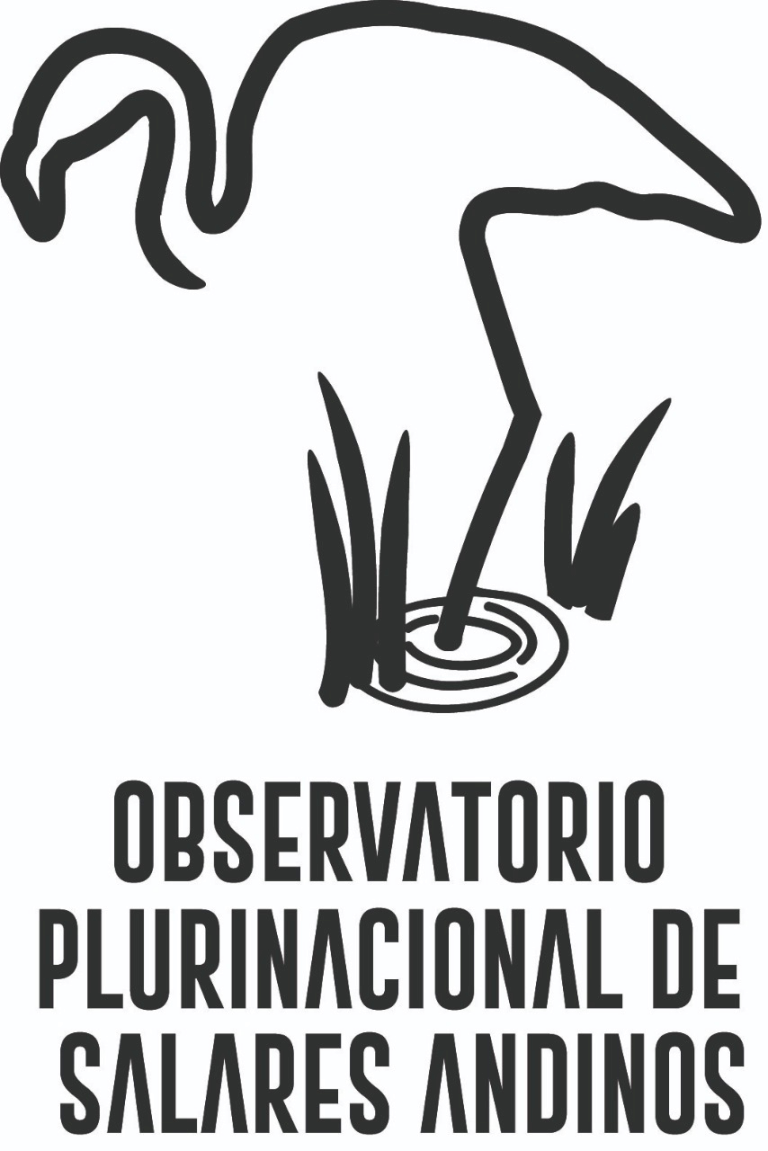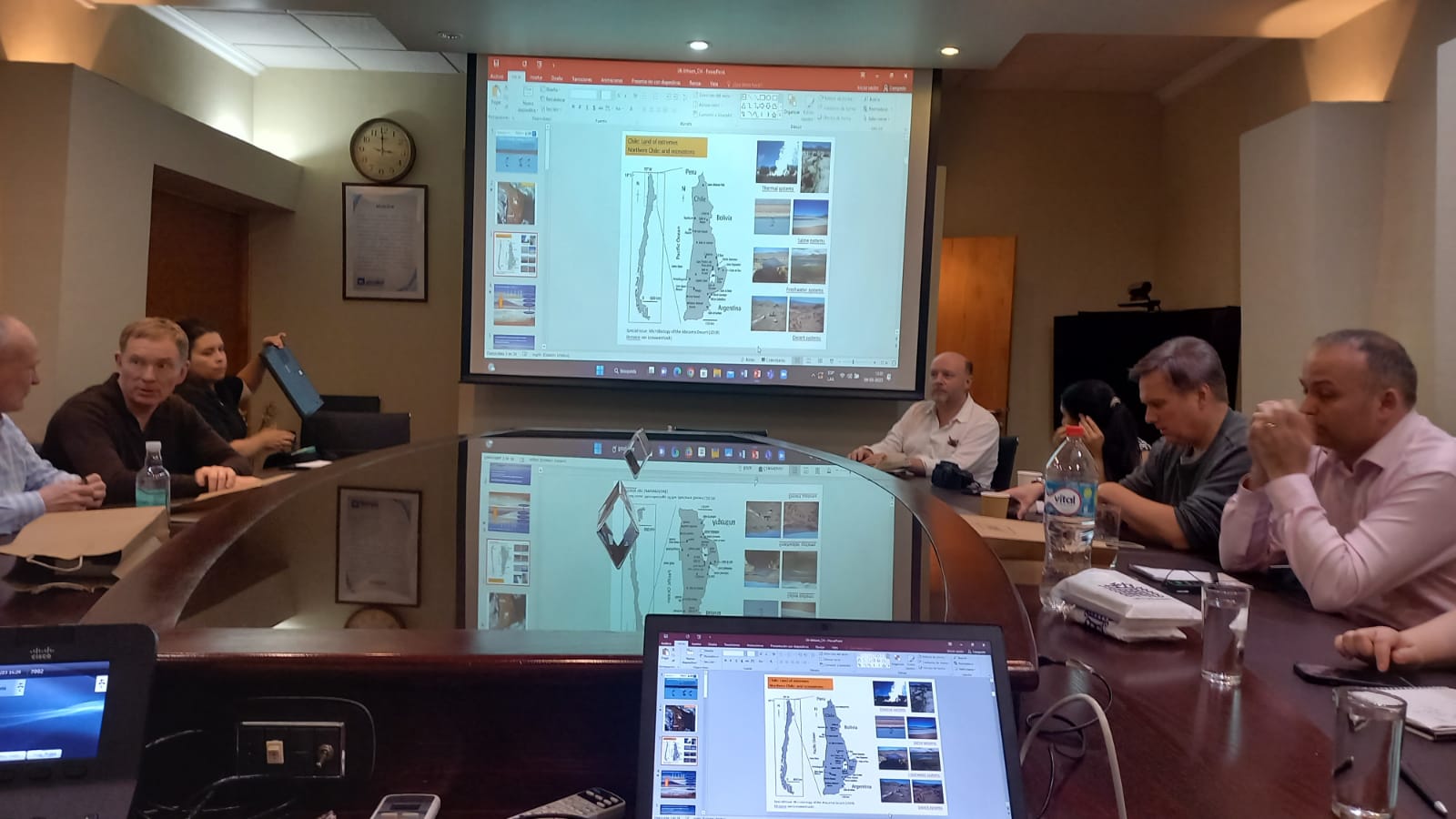The Indígenous farmer and member of OPSAL, Rudecindo Espíndola, attended a meeting organized by the Embassy of the United Kingdom in Chile on March 9, to denounce to a delegation of parliamentarians from the United Kingdom, the conflicts that the various lithium and copper mining projects – including British capitals – have had in the Salar de Atacama.
As reported by the organization, the Foreign Affairs Committee of the British Parliament visited Chile to learn about the state of the extraction of critical minerals, and in particular the lithium sector in Chile, in order to prepare a report and thus advise the Government on these issues. The delegation was composed of parliamentarians from different political sectors: Alicia Kearns, Chris Bryan, Hon Liam Byrne, Neil Coyle, Royton Smith, Henry Smith, Chris Shaw and Medha Bhasin, as well as the Minister Counselor of the British Embassy, Nicholas Kennedy.
This meeting was held a few days after the United Kingdom and Canada – a country that has its own extractivist agenda regarding lithium in Chile – signed an agreement to promote green technology supply chains. The agreement, described as historic by the UK government itself, aims to cooperate on minerals such as cobalt and lithium, which are considered «essential» to their economies. It also seeks to help British manufacturers of cutting-edge technologies to be «more resilient to global shocks by promoting research and development between UK and Canadian companies, driving innovation and growth», as announced in the press by the British government.
For the representative of the Lickanantay first nation, «this meeting held at the University of Antofagasta is another example of how the countries of the Global North want to impose their economic and political agendas upon our territories, where we have seen how mining projects have devastated the salt flats and high Andean wetlands and have brought dire economic and social consequences for the communities».
The British mining experience in Chile’s salt flats
Although the antecedents of British imperialism and its impacts on Andean peoples and ecosystems date back to the saltpeter cycle, today they are mainly linked to copper megaprojects – also considered essential for the corporate energy transition – and the overexploitation of aquifers that, once depleted, are replaced by desalinated seawater, transferring the socio-environmental impacts to the coastal ecosystems of the north of the country in total impunity .
In 2021, BHP, the majority owner and operator of the Escondida copper mine in Chile, had to pay $93 million dollars as part of an environmental plan, after the country’s First Environmental Court accepted the environmental reparation lawsuit filed by the State Defense Council, as a result of «continuous, cumulative, permanent and irreparable damage» caused to the ecosystem of the Punta Negra Salt Flat, Antofagasta Region, as a result of the extraction of its waters.
The exploitation of the aquifer caused a severe decrease in water levels, which compromised its regeneration in the future. This also caused the deterioration of the soil, the total loss of salt marshes and associated water vegetation and the loss of the fauna characteristic of the area, which is endangered and under protection.
This environmental plan, which represents a marginal sum for a mega-mining company like Escondida, continues to be strongly questioned due to the potential impacts of approved measures such as the reinjection of water extracted from other basins – which is like «pumping blood into a dead body» – and for acting as a legitimizer of a company that, thanks to the agreements reached, continues with its operations despite the irreparable damage caused to the ecosystems of the Salar and its wetlands.
Another case is linked to the joint lawsuit against the mining companies Escondida (BHP, Río Tinto), Zaldívar (Luksic) and Albemarle, also filed in 2022 by the State Defense Council in relation to the continuous extraction of groundwater from the Monturaqui-Negrillar-Tilopozo aquifer located in the south of the Salar de Atacama. The overexploitation by these three companies has caused a serious, permanent and irreparable deterioration of the aquifer, the Tilopozo meadows, the fauna, and the life systems and customs of indigenous peoples, abandoned by the State of Chile and left at the mercy of mining extractivism.
United Kingdom and lithium from the Jadar Valley, Serbia
Rio Tinto, the second controller of Minera Escondida, is currently seeking to extract lithium in the rural region known as the Jadar Valley in Serbia, where it has been opposed by local communities and socio-environmental movements throughout the country. «Under the protection of bilateral investment agreements between Serbia and the UK, where the company’s headquarters are located, Rio Tinto has consistently downplayed and misinformed the local population, while it is clear that its profits would be taken out of the country. All of this points to how deeply entrenched ecological imperialism has become, with Rio Tinto and others in the driver’s seat. This is the very opposite of a full «green transition» – whose adherents are today the companies themselves, and which is proclaimed by them as justification for expropriation and exploitation,» pointed out Aleksandar Matkovic, member of ECO Social Action, a co-signatory organization alongside OPSAL of the Jadar Declaration.
Escazú in Latin America
As is well known, the environmental legislation in force in Chile is permanently violated by companies operating in the Salar de Atacama and other territories in the country. In spite of this and unlike the United Kingdom, Chile and Latin American countries have the recently created Escazú Agreement – ratified by President Gabriel Boric in 2022 – the main environmental treaty in the region, which explicitly states that the countries that have ratified this agreement must guarantee the Right to Environmental Information (Principle 1), citizen participation (Principle 2) and the protection of environmental defenders (Principle 3). In this sense, «it is necessary that both the United Kingdom and Chile understand and demand that mining companies comply with current legislation and the agreements signed by the country, as well as to recognize the right of peoples to say no to projects that alter and affect their territories,» concludes Espíndola.

